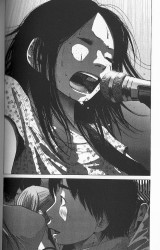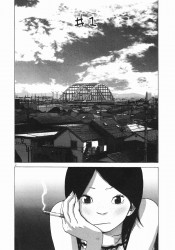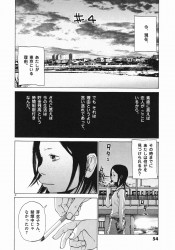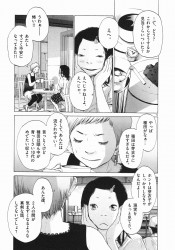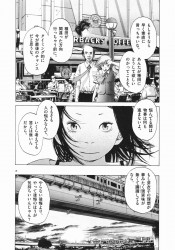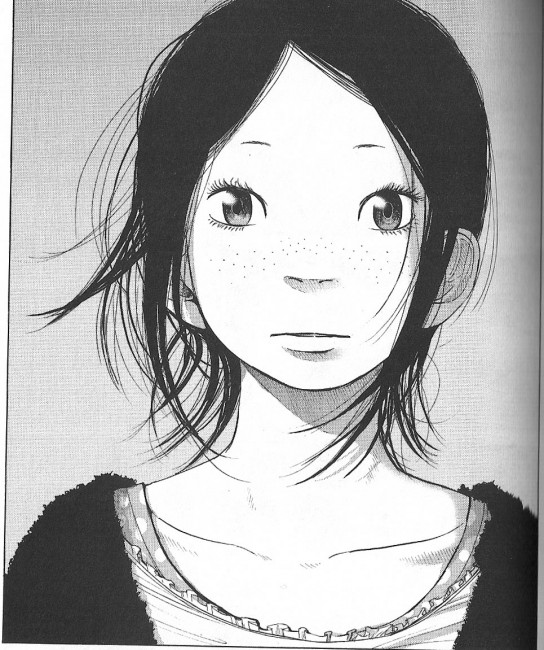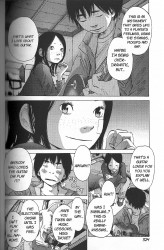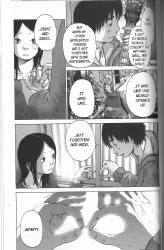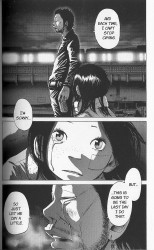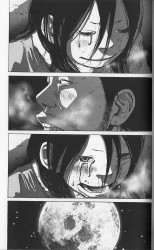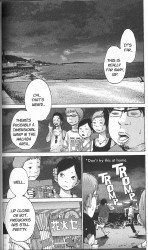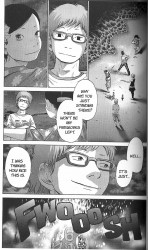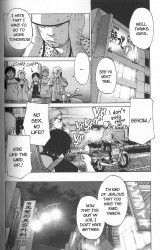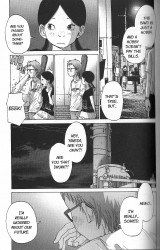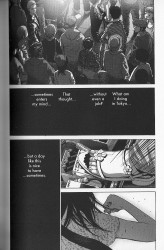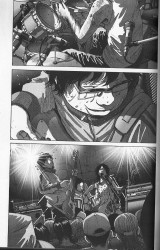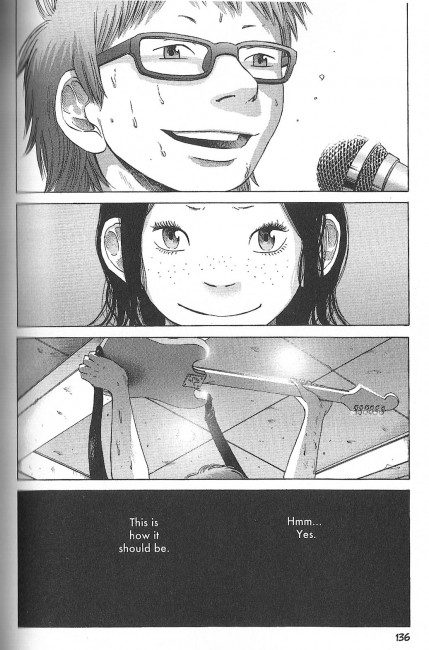Inio Asano’s Solanin is about a young girl stuck in that period of time where youthful dreams give way to cold reality. Meiko, the main character, is forced to confront that she may not grow up and get to be whatever she wants to be, and may have to take what she can get.
Meiko’s struggle and listlessness is very easy to relate to. Meiko is at a point in her life that I think most, if not all, of us go through. She’s graduated from college and is working a dead-end job that she doesn’t enjoy. She feels like her live-in boyfriend is freeloading, just a little, and while she’s not unhappy, she isn’t in a very good state of mind, either. She needs a change, but she doesn’t know which change or even how to figure that out. So, at the beginning of summer, she quits her job and decides to live off her savings for a while.
Her boyfriend and friends are similarly familiar. Her boyfriend is Naruo Taneda, and she simply calls Taneda most of the time. He’s accepted post-college life as something that’s endured. He goes to work at his freelance illustration job, accepts the crap hours, and deals with the crap pay.
Kato is a slacker, still fooling around in his sixth year of college. His girlfriend tolerates it, because she knows that adult life sucks. It’s boring and it’s long, so she might as well let him have his fun before she has to really crack the whip.
The word for Solanin is “melancholy.” Meiko’s thoughts are spelled out in a monologue over the course of most of the chapters, and she’s equal parts unsure and hopeful. When she finds something that can give her the get up and go that she needs, she embraces it, but even that isn’t enough, and she soon falls back into old habits.
The characters have embraced the idea of “it is what it is.” No one is particularly satisfied by their lot in life. Meiko struggles to find something to give life meaning, Taneda noodles around in his band, and Kato dreams about betraying his girlfriend. Rip, another of their friends, isn’t sure if he’s happy in his life, either, but he tries to make the best of it.
What’s interesting about Solanin is that since the majority of the cast is searching for ways to be happy, every smile is a worthwhile one. They take happiness where they can get it, whether it’s through dumb pranks or genuine breakthroughs. When Meiko watches Taneda and the band perform their new song, she smiles and says, “Yes. This is how it should be.”
Really, every emotion is earned. While there is one telegraphed and basically cliche twist partway through the book, the payoff for it is excellent. The scenes where the band performs are powerful and portrayed as raw emotion. The band’s rediscovering what they love, and through that, trying to find happiness.
Solanin is about coming to terms with real life. As kids, we are told and taught and assume that we’ll have these exciting lives where we own our own business, act in movies or plays, sing, write novels, or do something exciting for a living. In reality, though, most of us will spend our time working toward making someone else richer. Over the course of the book, Meiko learns that you have to take happiness where you can get it. A life of pure bliss doesn’t exist, it’s a child’s dream, and you have to grow out of a thirst for that before you can enjoy life as it should be.
There’s a powerful image toward the end of the book, of Meiko bent over, her head touching the ground. Nothing’s visible except for her figure collapsed on the ground. It’s one of my favorite images in the book, in part because of what it represents. She came to terms with what life is about and has finally decided what to do.
Solanin is very good. Maybe it’s because I’m around the same age as the cast of the book. I like to think that it’s because Solanin is very good in and of itself. It’s some 400 pages long, but I burned through it in a couple of sittings. I wish I’d read it last year when it came out. However, Asano has a couple more books coming out this month– What A Wonderful World! volumes one and two. I’m definitely going to check those out just because Solanin was so enjoyable.


, What a Wonderful World!, Vol. 1
, What a Wonderful World!, Vol. 2
